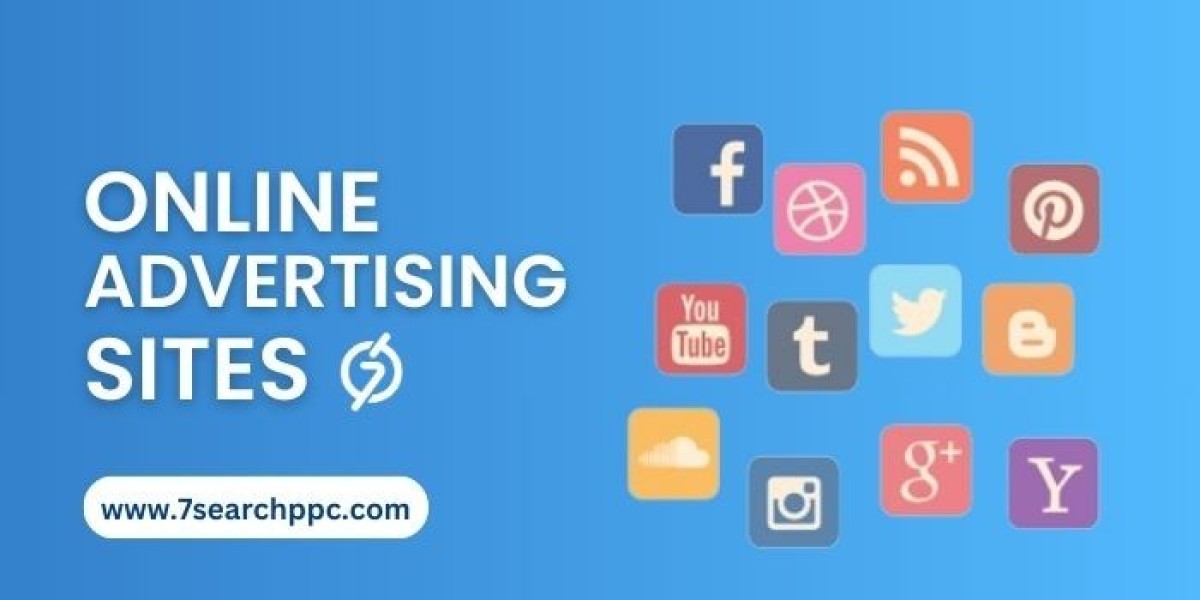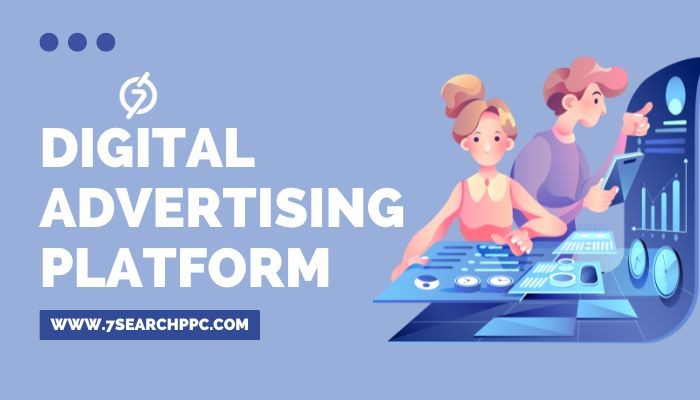In the digital age, businesses need to connect with their target audience effectively and efficiently. Digital advertising platforms provide the tools necessary to reach potential customers across various channels. This comprehensive guide explores the best digital advertising platforms, their features, and how they can elevate your marketing strategies.
What Are Digital Advertising Platforms?
Digital advertising platforms are online services that enable businesses to create, manage, and optimize advertising campaigns across various channels, such as social media, search engines, and websites. These platforms allow advertisers to target specific audiences based on demographics, interests, and behaviors, providing a more personalized advertising experience.
Importance of Digital Advertising Platforms
Digital advertising platforms have transformed how businesses engage with customers. Here’s why they are essential:
- Precision Targeting: Advertisers can reach specific audiences with tailored messages.
- Cost-Effectiveness: Many platforms operate on a pay-per-click (PPC) or pay-per-impression model, allowing for budget control.
- Measurable Results: Comprehensive analytics tools provide insights into campaign performance, enabling data-driven decision-making.
The Top Digital Advertising Platforms
Choosing the right digital advertising platform is crucial for your marketing success. Below, we explore some of the best options available.
Google Ads
Google Ads is one of the most powerful digital advertising platforms, allowing businesses to advertise on Google’s search engine results pages and across its extensive Display Network.
Key Features
- Search Ads: Appear when users search for specific keywords.
- Display Ads: Use visual content on partner websites to reach a broader audience.
- Remarketing: Re-engage users who have previously visited your website.
Benefits
Google Ads offers unparalleled reach and flexibility, making it suitable for businesses of all sizes. Its robust analytics help optimize campaigns for better results.
Facebook Ads
Facebook Ads is a leading online advertising platform that allows businesses to target specific audiences on Facebook and Instagram based on user behavior, demographics, and interests.
Key Features
- Custom Audiences: Target users based on their previous interactions with your business.
- Ad Formats: Choose from a variety of formats, including image, video, and carousel ads.
- A/B Testing: Experiment with different ad variations to find what works best.
Benefits
Facebook’s vast user base and advanced targeting options make it an excellent choice for building brand awareness and engagement.
LinkedIn Ads
LinkedIn Ads is a powerful platform for B2B marketing, enabling businesses to connect with professionals and decision-makers in their industries.
Key Features
- Sponsored Content: Promote content directly in users' feeds.
- InMail Ads: Send personalized messages to LinkedIn users.
- Advanced Targeting: Focus on job title, industry, and company size.
Benefits
LinkedIn Ads is particularly effective for lead generation and nurturing professional relationships.
7Search PPC
7Search PPC is an emerging player in the pay-per-click advertising space, providing a robust platform for advertisers looking to maximize their online visibility.
Key Features
1. Cost-Effective: 7Search PPC allowing advertisers to set their own budgets and maximize their ROI.
- Comprehensive Targeting: This ensures that ads are shown to the most relevant audiences, enhancing engagement and conversion rates.
- Video Ads: Use video content to engage users more effectively.
Benefits
The 7Search PPC referral program offers numerous advantages for users looking to leverage their network for additional income.
Pinterest Ads
Pinterest Ads enables businesses to showcase their products visually, targeting users who seek inspiration and planning ideas.
Key Features
- Promoted Pins: Boost visibility for specific pins on user feeds.
- Shopping Ads: Direct users to product pages for easy purchasing.
- Audience Targeting: Target users based on interests and search behaviors.
Benefits
Pinterest is particularly effective for industries like fashion, home décor, and DIY, where visual appeal is critical.
Free Online Advertising Platforms
While many digital advertising platforms require a budget, several free online advertising platforms can help businesses promote their products without incurring costs.
Google My Business
Google My Business is a free tool that helps businesses manage their online presence across Google, including Search and Maps.
Key Features
- Business Listing: Create a comprehensive business profile.
- Customer Interaction: Engage with customers through reviews and messages.
- Insights: Access data on how customers find and interact with your business.
Benefits
Optimizing your Google My Business listing can significantly increase local visibility and drive foot traffic.
Social Media Platforms
Social media platforms like Facebook, Instagram, Twitter, and LinkedIn allow businesses to create accounts and post content without any costs.
Key Features
- Content Sharing: Share updates, promotions, and engage with your audience.
- Community Building: Foster a community around your brand.
- Organic Reach: Utilize hashtags and SEO strategies to increase visibility.
Benefits
Effective use of social media can help businesses build brand awareness and engage directly with customers.
Blogging and Content Marketing
Creating valuable content through blogs and articles is a powerful way to attract organic traffic to your website.
Key Features
- SEO Optimization: Use targeted keywords to improve search engine rankings.
- Shareable Content: Develop content that encourages social shares.
- Authority Building: Establish your brand as a knowledgeable authority in your industry.
Benefits
Content marketing drives long-term traffic and generates leads without direct advertising costs.
How to Choose the Right Digital Advertising Platform
Selecting the right digital advertising platform involves several considerations:
Define Your Goals
Before diving into any advertising platform, clearly define your marketing goals. Are you aiming for brand awareness, lead generation, or sales conversions? Your objectives will help determine which platforms to prioritize.
Know Your Audience
Understanding your target audience is crucial. Research their online behavior, preferred platforms, and content consumption habits. This information will guide your choice of advertising platforms and strategies.
Budget Considerations
Consider your budget when selecting digital advertising platforms. Some platforms offer free options, while others require significant investment. Be realistic about what you can spend and what return on investment (ROI) you expect.
Explore Features and Tools
Each platform offers unique features and tools that can enhance your advertising campaigns. Take the time to explore these options and determine which align best with your goals.
Best Practices for Digital Advertising
Once you've selected your digital advertising platform, implementing best practices can maximize your success:
Create Compelling Ad Content
Your ad content is crucial in capturing your audience's attention. Use high-quality images, engaging headlines, and clear calls to action to drive engagement.
Utilize A/B Testing
Experiment with different ad variations to see what resonates best with your audience. A/B testing allows you to refine your strategies and improve performance over time.
Monitor and Optimize Performance
Regularly analyze your ad performance using the platform's analytics tools. Adjust your campaigns based on the data to enhance results continually.
Stay Updated on Trends
Digital advertising is constantly evolving, with new trends and technologies emerging regularly. Stay informed about industry changes to ensure your advertising strategies remain relevant.
Conclusion
Digital advertising platforms are essential tools for businesses looking to reach and engage their target audiences effectively. From Google Ads and Facebook Ads to free options like Google My Business, each platform offers unique features and benefits that can enhance your marketing strategies.
By understanding your goals, audience, and available resources, you can select the digital advertising platforms that best align with your business objectives. Implementing best practices and staying informed about industry trends will further enhance your advertising efforts, allowing you to achieve success in the competitive digital landscape. Whether you are a seasoned marketer or just starting, the right digital advertising platform can make all the difference in your overall marketing success.
Frequently Asked Questions (FAQs)
What are the main types of digital advertising platforms?
Ans. Digital advertising platforms can be categorized into search engines (e.g., Google Ads), social media platforms (e.g., Facebook Ads), display networks, video platforms (e.g., YouTube Ads), and affiliate marketing platforms.
Are there free digital advertising platforms available?
Ans. Platforms like Google My Business, social media networks, and content marketing strategies can be utilized for free to promote your business online.
How do I measure the success of my digital advertising campaigns?
Ans. You can measure success through various metrics, including click-through rates (CTR), conversion rates, return on ad spend (ROAS), and engagement metrics. Most advertising platforms provide robust analytics tools to track these metrics.
How can I effectively target my audience on digital advertising platforms?
Ans. You can effectively target your audience by utilizing demographic information, interests, behaviors, and custom audience features available on most platforms. Additionally, retargeting options allow you to re-engage users who have interacted with your brand.
How often should I review and adjust my advertising campaigns?
Ans. It’s advisable to review your advertising campaigns regularly—at least weekly or bi-weekly. This allows you to identify trends, optimize performance, and make necessary adjustments based on data insights.



